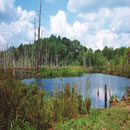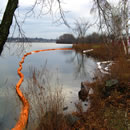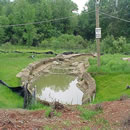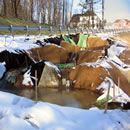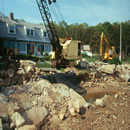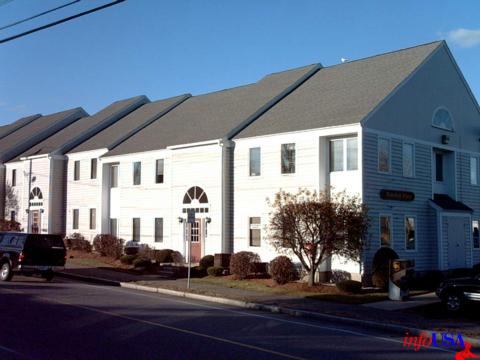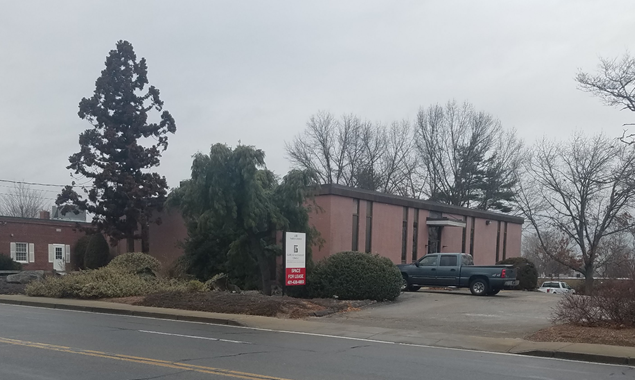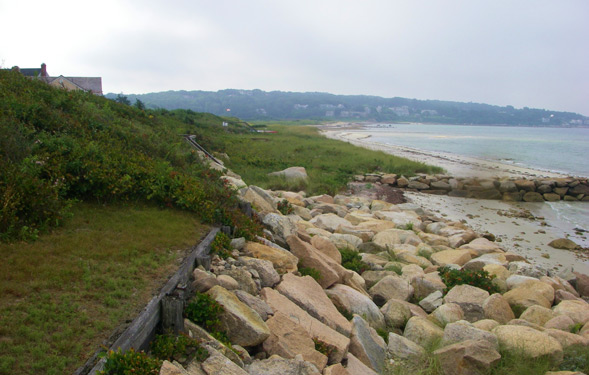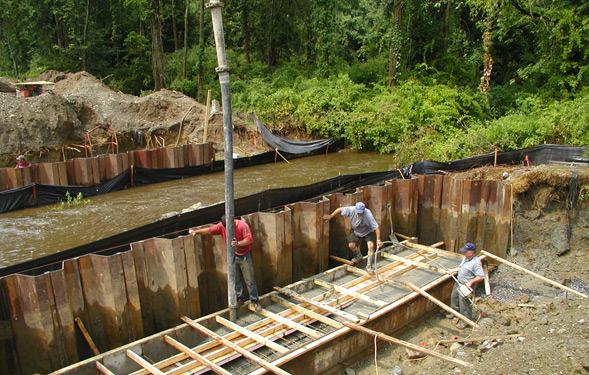click on the title to see more info
Permitting
LEC has been retained by residential/commercial developers as well as engineering firms to obtain necessary permits associated with development. Permit applications often require detailed site evaluations and analyses for proposed projects in order to demonstrate regulatory compliance and obtain the necessary permits. We provide the required environmental services, experience, and expertise to obtain environmental permits associated with development activity.
Wetland Notice of Intent Applications
A Notice of Intent (NOI) Application is the primary permitting instrument for projects subject to the Massachusetts Wetlands Protection Act and its Regulations, as well as local Wetlands Bylaws and Ordinances. LEC often prepares NOI Applications for proposed development, leading the project team through project design and Site Plan preparation, and representing the Applicant through the entire permitting process. When projects involve direct wetland impacts, LEC works with the project team to evaluate feasible alternatives, wildlife habitat evaluations, and wetland replication–all services that LEC provides.
Wetland Boundary Determinations
It is often valuable to legally establish the extent of wetland jurisdiction under the Massachusetts Wetlands Protection Act (and Bylaws or Ordinances) on a property before proceeding with project design. This is typically accomplished through the Abbreviated Notice of Resource Area Delineation (ANRAD) process. Following a Site Inspection and Wetland Delineation, LEC represents Applicants through the ANRAD process, obtaining for the Applicant an Order of Resource Area Delineation, which confirms the wetland boundaries for 3 years.
MESA Rare Species Permits
For any proposed project or work activity located within a Priority Habitat of Rare Species designated by NHESP, MESA Project Review is required. NHESP will review a project to determine whether a "take" occurs under MESA. Projects or activities resulting in rare species habitat modification, degradation, or destruction may result in the disruption of nesting, breeding, feeding or migratory activity, thus likely constituting a "take." While proposed projects may result in a "take" of a rare species, an Applicant must demonstrate compliance with MESA in order for NHESP to issue a Conservation and Management Permit. LEC has navigated many projects through the NHESP review process to obtain such Permits.
MEPA ENF/EIR
Based on the size and scope of a project, the extent of environmental impacts, and required state agency permitting, projects may be required to undergo the MEPA review process and prepare environmental impact reports. This process originally was intended to provide project proponents the opportunity to gain input from regulators and interested parties early in the design process; however, over time it has developed into a much more detailed and often times lengthy process. The timing of the MEPA review process varies from project to project depending on the required permits and project goals. LEC provides assistance to our clients through the MEPA process, often working with a team of consultants and engineers to address review comments and ultimately achieve a favorable MEPA Certificate.
ACOE Section 404 Permits
The Clean Water Act requires permitting with the ACOE for projects that exceed certain thresholds for work within Waters of the United States, including wetlands and land under water. This process often involves work that also requires a permit under the Massachusetts Wetlands Protection Act. This permitting typically requires evaluation of alternatives, wetland functional assessments, and wetland replication–all services that LEC provides noted under other service descriptions. Depending on the extent and complexity of the project, LEC often schedules permitting strategy meetings with our clients and/or pre-application meetings with regulators to achieve regulatory compliance early in the design phase and expedite the permitting process.
DEP 401 Water Quality Certification
Water Quality Certification is administered by the DEP under the Clean Water Act. Often times, permitting under Sections 401 and 404 are required, and DEP and ACOE regulators coordinate their review of 401 and 404 Permit Applications. LEC typically files these permits simultaneously–working with both agencies to expedite the permit review process, and prevent duplication of effort. This permitting typically requires evaluation of alternatives, wetland functional assessments, and wetland replication–all services that LEC provides noted under other service descriptions.
DEP Chapter 91 Waterways Licenses
Under the Public Waterfront Act, there is state regulation of activities proposed in tidelands. There are seven basic categories of activity that require authorizations, including both new and existing unauthorized activities, and there are five types of authorizations. While the statute and the regulations are designed to ensure that activities are "water-dependent", there are "nonwater-dependent" project proposals that must demonstrate that they serve a "proper public purpose". LEC is very familiar with these and other requirements, as well as the ten or more licensing/permit procedures that are involved.
CZM Federal Consistency Review
Under the federal Coastal Zone Management Act, the MCZM program looks to established environmental review thresholds to gauge when projects significantly impact the Coastal Zone and cooperates with federal regulatory agencies to develop general permits for projects of minimal impact. Typically, only those projects requiring an Individual Permit from the ACOE must submit a letter to CZM stating how the project meets one or more of the 19 program plan policies. These policies address eight issues: water quality; habitat; protected areas; coastal hazards; port and harbor infrastructure; public access; energy; and ocean resources.
Construction Supervision
Compliance with Environmental Permits during construction is an important consideration for maintaining tight construction schedules and meeting sensitive deadlines. These permits are typically detailed and lengthy, often requiring erosion control monitoring and supervision when work occurs within or nearby a wetland. LEC is experienced in monitoring erosion controls, solving erosion/sedimentation problems, and supervising work within wetlands to ensuring that Environmental Permits are implemented correctly.
Peer Review
In addition to representing development and community interests, LEC also provides peer review services on behalf of City or Town agencies including Conservation Commissions. A thorough peer review is often valuable for complex or controversial projects, or if a particular City or Town lacks the staff or resources to offer a thorough review of permit applications. This review is conducted within the guidelines, laws, and regulations that govern agency review. LEC maintains established relationships with several Massachusetts Cities and Towns and seeks to expand this service throughout the State.

